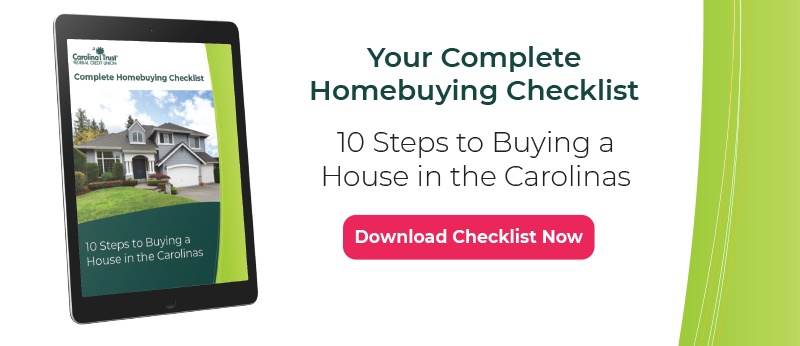Purchasing a home in South Carolina has proven to be an intelligent investment. Since 2018, South Carolina's real estate market has experienced substantial growth. Over the last five years, from the fourth quarter of 2018 to the fourth quarter of 2023, the state's total home appreciation was recorded at 84%, with an average annual growth rate of 16.8%. If your equity improved in recent years, and you have a need for an affordable financing option, a cash out refinance mortgage could deliver wide-reaching benefits.
What is a Cash Out Refinance?
A cash out refinance allows homeowners to take advantage of the home equity they’ve accumulated. This borrowing option pays off an existing mortgage and homeowners can take the difference between the principal and property value in cash. Because a cash out refinance pays off the current home loan before transferring equity into your account, it is not a second mortgage. When the process is complete, you’ll only have a single monthly installment and money in the bank.
How Does a Cash Out Refinance Work?
If you are considering a cash out refinance, it’s important to keep in mind that you will need to meet specific criteria. Homeowners who apply for a cash out refinance loan typically need a FICO score of 620 or higher. Many local lenders will allow you to withdraw up to 80 percent of the equity.
For example, let’s say you own a property valued at $400,000 in today’s hot real estate market. You may have taken out a mortgage for $200,000 years ago and have steadily paid down the principal. For the sake of round numbers, let’s peg the mortgage balance at $100,000, putting the equity at $300,000. Getting approved for a cash out refinance loan could allow you to take 80 percent of $300,000 — or $240,000 —and use it for other purposes.
There are a few caveats to this general policy. If you have a VA loan, it may be possible to leave only 10 percent of the equity intact. If you have an FHA loan, a 580 score may restrict your equity draw to pay off debt at the closing. To pull the equity for other purposes from an FHA, you may need a credit score of 620 or higher.
Another item to consider is your debt-to-income (DTI) ratio. Experienced local lenders like Carolina Trust FCU prefer to see a DTI of no higher than 50 percent. But, again, there may be exceptions for people with VA or FHA loans.
5 Ways A Cash Out Refinance Can Help
It’s not uncommon for homeowners to obtain cash out refinance loans to make strategic financial and quality of life investments. Local lenders place few — if any — restrictions on how you deploy the funds. Here are just a few of the ways savvy financial planners use a cash out refinance to further their goals.
1. Lower Your Mortgage Interest Rate
Working families that became homeowners years ago may have achieved their dream without the downpayment they hoped to have, or the credit score they enjoy today. With a higher FICO score and a more established financial portfolio, you could be eligible for a lower interest rate that reduces your monthly mortgage payments.
2. Use Money for Debt Consolidation
Recent reports indicate that the average American is burdened with nearly $6,000 in high-interest credit card debt. That figure is down from 2022, when credit card debt stood at more than $7,200. Along with reining in spending, debt-strapped community members took decisive measures to reduce balances.
While borrowing options can help bring wide-reaching debts under one umbrella, a cash out refinance may be superior to other debt consolidation products. You can use the equity to simply pay off high-interest debts without an additional monthly loan payment.
3. Tackle a Home Improvement Project
Paying off your existing mortgage and using the extra cash to make home improvements ranks as one of the best investments. Homeowners are essentially using their equity like a savings account and putting it back into the home. And the interest rates for a cash out refinance are usually a better value than personal loans and far lower than using a credit card.
Upgrades such as a refinished basement, kitchen remodel, luxurious bathroom, or adding another room deliver an excellent return on investment. They also enhance the peaceful enjoyment of being at home.
4. Pay for Life's Surprises
We all know that life throws us a curve ball now and again. Whether it involves a positive, life-changing experience or a setback, having cash on hand can make a meaningful difference. Homeowners routinely use a cash-out refinance to handle unexpected medical bills, pay wedding expenses, or put a child through college, among others. It’s your equity and this lending option turns it into cash.
5. Invest In Your Future
The adage that it “takes money to make money” is applicable to cash out opportunities. Sometimes people use the funds to boost their retirement accounts or even purchase an investment property. Given the economic challenges in recent years, working families may feel more comfortable converting equity into an emergency fund. Homeowners are free to make decisions about how best to re-invest their equity.
 5 Things You Must Know Before Taking Out A Cash Out Refinance
5 Things You Must Know Before Taking Out A Cash Out Refinance
Before applying for a cash out refinance loan, it’s crucial to conduct due diligence. You will be required to take certain loan-approval steps and assume some expenses. These are factors to include in your decision-making process.
1. You'll Have to Leave Equity in Your Home
In terms of home equity, a cash out refinance mirrors other typical mortgages. Initial down payments of 20 percent ensure lenders won’t lose money should someone default. The need to maintain that buffer exists in cash out refinances as well. That’s why homeowners generally need to leave 20 percent to secure the loan.
2. You'll Pay Closing Costs
Like a mortgage, a cash out refinance usually comes with closing costs and fees. Local lending institutions tend to offer lower closing costs and fewer fees. Before completing a cash out refinance loan application, it may be in your best interest to speak to a knowledgeable associate and find out if there are any “hidden fees.”
3. You'll Need an Appraisal
Along with adding an expense, home appraisals also take time. Underwriters cannot approve a home loan without a reputable firm assigning an accurate real estate value. Make sure to research if a cost is associated with this step and how much you can expect to cover
4. You Won't Get Cash Immediately
The Truth in Lending Act mandates that lenders give loan applicants three days to cancel. Buyer’s remorse is a real thing. Along with that wait period, disbursements won’t occur until 3-5 days after the closing date. If time is of the essence, a cash out refinance might not provide the quick financial relief you need.
5. Loan Terms May Change
When you refinance a home, you’re also resetting the repayment clock. The monthly installment may be lower with a cash out refinance loan, but the number of payments could be longer. Restarting the repayment cycle may result in paying more in the long run. Check the numbers using a mortgage calculator and decide whether a cash out refinance is right for you.
Cash Out Refinance Vs. Home Equity Loan: What's the Difference?
Unlike a cash out refinance, a Home Equity Loan (HELOC) creates an additional monthly payment that feels like a second mortgage. A HELOC also functions as a line of credit, similar to a credit card. With both a borrowing or draw period as well as a repayment period, HELOCs are not typically utilized for lump sum loans. HELOC borrowers can withdraw funds as needed, using equity as collateral. Similar to a cash out refinance, as a secured loan product, a HELOC typically comes with low-interest rates.
Carolina Trust Is Here to Help!
If you have equity in your home that could be put to good use, the mortgage professionals at Carolina Trust Federal Credit Union are here to help you decide if a cash out refinance loan is the best solution for your needs. Contact one of our home loan specialists today to discuss your mortgage refinance options.




